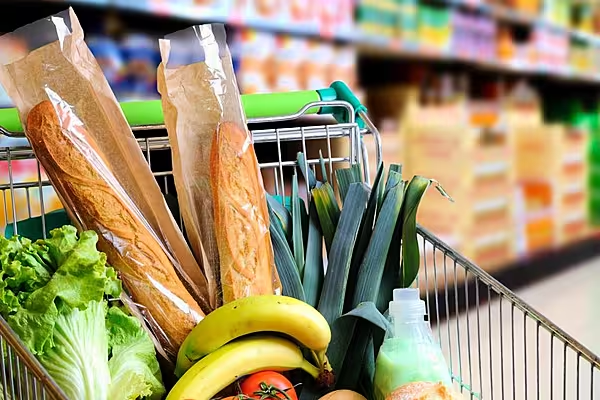According to PayPal, Ireland’s online consumers spend far more money at international online stores rather than domestic ones.
The electronic payment company released its Global Cross-Border Commerce Report, conducted by Ipsos, which revealed new insights into how Irish shopping habits.
According to the report, Irish online consumers spent up to €2.7 billion on foreign online stores over the last 12 months, with over half a million people buying solely from websites outside of Ireland.
This is due to lower prices, more product variety, and affordable shipping, the report found, adding that the UK, the US, and China are the top three import markets.
Irish consumers are more likely to take their online shopping to international markets, with 65% of consumers admitting to shopping overseas and domestically, and a further 19% shopping overseas alone.
Irish online shoppers said they were deterred from shopping on domestic websites due to delivery fees, 34%, and return shipping costs, 21%.
The Grocery Picture
This is a worrying fact for Irish retailers, as the report found that Irish shoppers are using their mobiles to shop and make purchases on-the-go, with two-thirds of respondents claiming to have shopped using a smartphone or a tablet.
PayPal predicts that mobile spending in Ireland will grow by over 60% this year to €2.8 billion, however during the week it was reported that Irish shoppers are slow to adapt to technology when it came to convenient retailing - and this is despite wanting convenience.
Nielsen, the data analytics company published its Quest for Convenience report which highlights a rapidly growing demand for convenience in markets around the world, but highlighted that Ireland and the UK are lagging far behind.
In every area bar self-service checkouts, where Irish shoppers are far ahead of the curve, they have failed to show any significant interest in using e-commerce technologies such as in-store WiFi, QR codes, mobile shopping lists, and social media to aid purchasing decisions.
Louise Phelan, PayPal’s vice president, said that the new research shows that “there’s still so much to play for” for Irish businesses.
“In just two years’ time, e-commerce is going to be worth over €10 billion in Ireland. Irish businesses have a tremendous opportunity in front of them to attract more customers and increase their online sales,” Phelan said.
“It’s all about putting yourself in your customer’s shoes and understanding how to turn a browser into a buyer. For example, the number of Irish consumers making a purchase on their mobile is growing at such a phenomenal rate that having a mobile-friendly website is no longer optional – it is absolutely vital for the future of any business.”
Cheaper From Afar
At the beginning of July, Retail Excellence, the retail representative group in Ireland, submitted its Budget 2019 submission - “Retail: Sustaining and Growing an Economy”.
In it, the retail organisation called for “additional online supports and tax fairness measures to protect retailers from the onslaught of cheap, non-European imports.”
It claimed that one of the biggest threats to bricks and mortar stores in Ireland is the glut of cheap, non-European imports being bought by Irish consumers online.
“The prices of these goods and products are generally distorted as many distance sellers are not registered for VAT in Ireland and therefore do not apply same or duties to the product price which leaves our retailers at a competitive disadvantage,” it said in its submission.
“Consequentially, this is a tax fairness issue”.
In its own response to the issue, PayPal launched a Refunded Returns Service to address the issues surrounding delivery fees and return shipping costs.
“We cover the cost of return shipping for online shoppers who use PayPal,” Phelan said, “saving consumers and businesses up to €30 per return.”
“It’s one of the many ways we’re working hard to help Irish businesses compete online, both at home and internationally.”
© 2018 Checkout – your source for the latest Irish retail news. Article by Aidan O’Sullivan. Click subscribe to sign up for the Checkout print edition.









